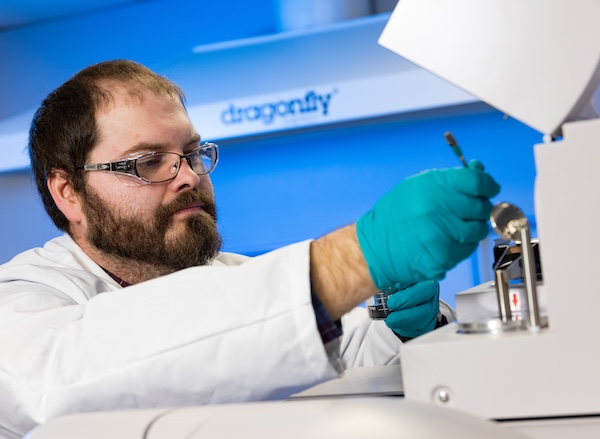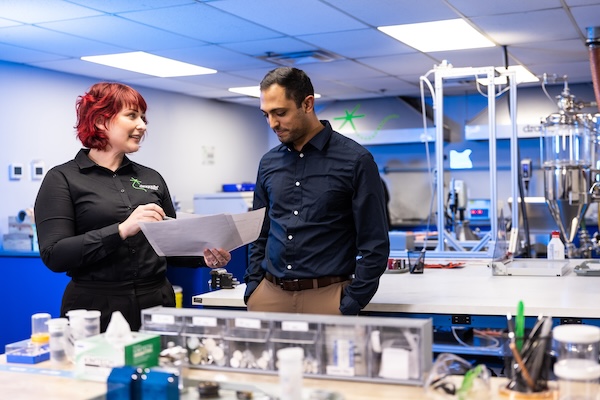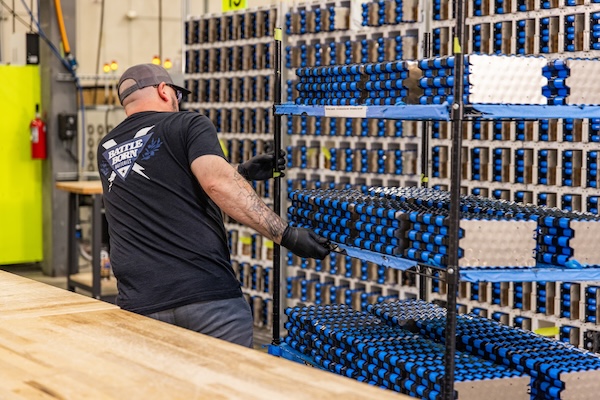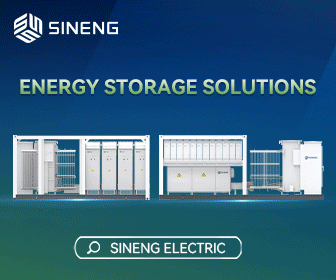Logistics of Lithium: Education for a sustainable future
In the ever-evolving landscape of energy storage solutions, lithium batteries are quickly moving up the ranks when it comes to sustainability and technology solutions. From smartphones to electric vehicles, laptops, scooters, and even off-grid living and storing renewable energy, lithium-ion batteries are indispensable throughout our daily lives. As we search for more efficient and more environmentally friendly energy storage solutions, we need a deeper understanding of lithium batteries before we begin to power energy storage technology for the future.

Understanding the chemistry
The core of a lithium battery is an intricate matrix of materials, electrolytes, and electrochemical processes that determine how they perform and for how long. For years, battery manufacturers and technology companies have been studying lithium battery chemistry to understand and research the opportunities and weaknesses of the various chemistries, as well as how they can work to the benefit of advanced technologies. By closely studying the behaviors of electrode materials at the nanoscale or investigating deeper electrolyte formulations, researchers are unlocking the pathways to safer and more efficient batteries, complete with enhanced energy density and lifecycles.
Mitigating environmental impacts
While the benefits of lithium batteries are numerous, their quick and widespread adoption has raised concerns about safety and sustainability. From the potentially damaging extraction of lithium and other raw materials, to manufacturing emissions and waste, to battery disposal and recycling, every stage of the battery lifecycle presents environmental challenges. A focus on education and research initiatives is essential for mitigating these impacts. The real solution, however, is to create batteries that ultimately lessen our environmental impact from the start.
That consideration begins with developers adopting a holistic perspective on the impacts from sourcing to the production line, with an increased focus on using recyclable materials and improving the battery lifecycle processes. Ultimately, reducing the environmental footprint of the battery manufacturing process will lead to a completely sustainable process that positively impacts the circular economy of the battery industry itself. Considering Nevada hosts potentially the largest lithium deposit in the country, Biden’s recent 2.26-billion-dollar infusion to the state comes as no surprise. In fact, lithium battery recycling plants have already established operations in northern Nevada. And a Nevada-based lithium technology company is already moving forward with a patented dry electrode manufacturing technology that allows for a 22 percent reduction of required factory space for battery production, compared to traditional processes.

Advancing energy storage technologies
In an era where sustainability is a business requirement, energy storage technologies like lithium batteries play a pivotal role in facilitating the transition from coal and fossil fuels to renewable energy sources. With high energy density and rechargeability, lithium batteries are leading the revolution. However, we are far from reaching the full potential of lithium technology. There will always be a battery that stores more energy, charges faster, lasts longer or is more environmentally friendly to manufacture. As battery technology companies continue to develop lithium battery technology, the solution for these advanced batteries becomes clearer.
The promise of solid-state
Safety concerns are at the top of the list. While issues such as thermal runaway and battery fires make headlines, they underscore the importance of rigorous research and education. To remain competitive, battery manufacturers are working to develop safer and nonflammable solutions, including an all-solid-state battery.
Solid-state lithium batteries represent a paradigm shift in energy storage, replacing traditional liquid electrolytes with solid-state alternatives. By eliminating flammable components and enhancing ion conductivity, solid-state batteries bring enhanced safety, higher energy densities, and longer cycle lives.

Solid-state lithium batteries offer more than just technological advancements — they embody a commitment to resolve the very challenges the industry faces. By eliminating flammable components and toxic materials, solid-state batteries mitigate safety hazards and environmental risks associated with traditional lithium-ion batteries. The longer cycle lives and higher energy densities contribute to the longevity and efficiency of energy storage systems, and support the swift move to a truly renewable energy source.
Solid-state lithium batteries stand out as a sign of innovation and progress. Through comprehensive education and research, we continue to unlock the transformative potential of solid-state battery technology and its role in shaping a world powered by clean, reliable energy, and a clear path to a greener tomorrow.
A foundation for the future
The pursuit of fundamental knowledge in lithium batteries is transformative in reshaping the energy landscape for generations. From solid-state batteries to lithium-air and beyond, the possibilities are endless, but realizing and capitalizing on these requires a foundation built on education and research. Through this, we can enhance our understanding of battery chemistry, drive innovations in energy storage, mitigate environmental impacts, ensure safety and reliability, and pioneer transformative technologies. Only then will the industry be more sustainable and electrified.
Tyler Bourns is the Chief Marketing Officer for Dragonfly Energy, a green energy storage company which has a patented dry-electrode manufacturing technology that is being developed to enable cost-effective and sustainable lithium battery production in North America.
Dragonfly Energy | dragonflyenergy.com
Author: Tyler Bourns
Volume: 2024 July/August









